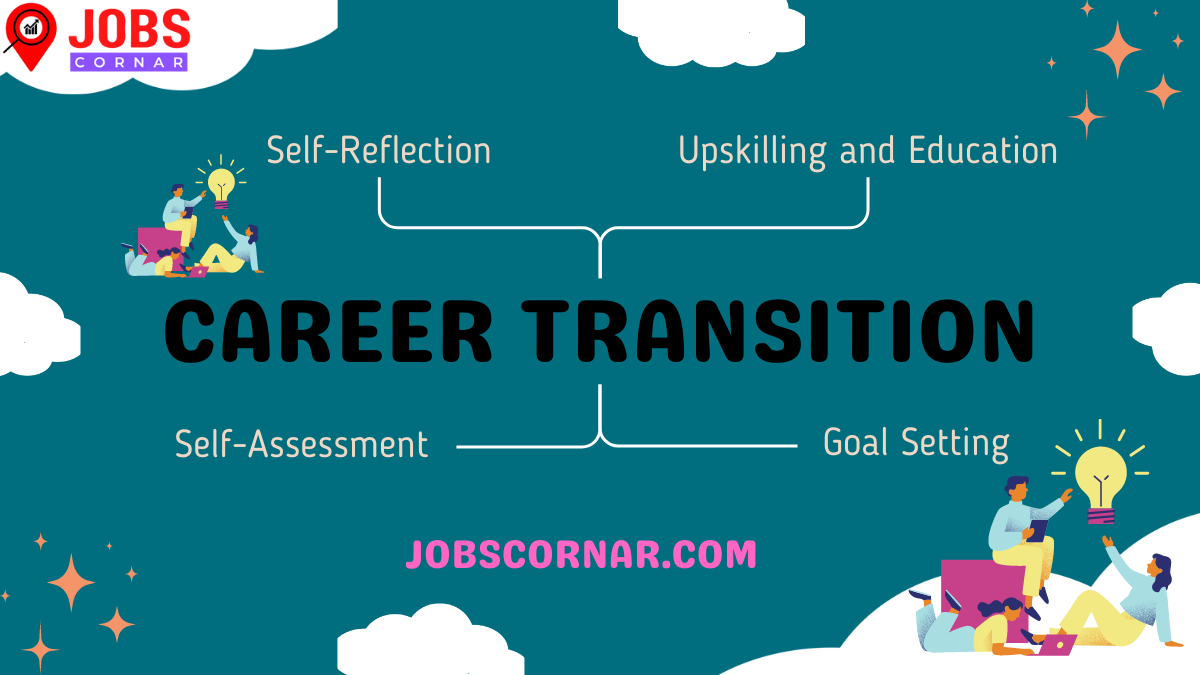Career Transition at 40: Reinventing Yourself for a New Beginning. In fact, many individuals in their 40s use this stage to reinvent themselves, seeking a fresh start and renewed purpose. This blog explores the possibilities, challenges, and strategies involved in a successful career transition at 40.
Introduction:
In today’s rapidly evolving job market, career transitions have become a common occurrence. Embracing change and stepping out of your comfort zone can be daunting, especially when contemplating a career transition at 40. However, age should not be a barrier to pursuing new opportunities and finding fulfillment in your professional life. In fact, many individuals in their 40s use this stage to reinvent themselves, seeking a fresh start and renewed purpose. This blog explores the possibilities, challenges, and strategies involved in a successful career transition at 40.
- Self-Reflection: Identifying Your Passion and Strengths:
Before embarking on a career transition, take the time for deep self-reflection. Identify your passions, interests, and core strengths. Consider what truly excites you and the skills you’ve honed over the years. Take note of your past achievements and experiences, both in and out of your career, to understand what you can bring to the table in a new field.
- Research and Explore New Paths:
Thorough research is vital when transitioning to a new career at 40. Delve into the industries or roles that pique your interest, and understand the demand for skills and qualifications in those fields. Connect with professionals already working in those areas to gain insights into the day-to-day responsibilities, challenges, and opportunities.
- Evaluate Transferable Skills:
While your previous career might seem vastly different from the one you want to pursue, you likely possess transferable skills that can be applied to your new path. Skills such as leadership, problem-solving, communication, and adaptability are valuable assets that transcend industries.
- Upskilling and Education:
To increase your chances of success in a new career, consider investing in further education or upskilling. Enrolling in relevant courses, attending workshops, or pursuing certifications can provide you with the knowledge and credibility needed to make a smooth transition.
- Networking and Building Connections:
Networking is crucial during a career transition, as it can open doors to new opportunities and provide invaluable guidance. Attend industry events, join online professional networks, and engage in informational interviews with experts in your desired field.
- Revamping Your Resume and Cover Letter:
Adapting your resume and cover letter to your new career aspirations is essential. Highlight your transferable skills and showcase how your previous experiences align with the requirements of the new role. Tailor your application materials for each job you apply to, emphasizing relevant achievements and accomplishments.
- Embrace Flexibility and Patience:
A career transition can be a gradual process, and it’s essential to embrace flexibility and patience. Recognize that setbacks may occur, and it might take time to land your dream job. Stay resilient, and continue to learn and grow from each experience.
- Seek Mentorship and Guidance:
Mentors can offer valuable insights and guidance during your career transition. Look for experienced professionals who have successfully navigated a similar path or work in your desired field. Their mentorship can prove invaluable as you make important decisions.
- Overcoming Age-Related Stereotypes:
It’s common for job seekers in their 40s to face age-related stereotypes during their transition. Address any concerns proactively by emphasizing your adaptability, eagerness to learn, and how your experience can bring a unique perspective to the role.
- Embrace the Growth Mindset:
Approach your career transition with a growth mindset – the belief that your abilities and intelligence can be developed with effort and perseverance. Embracing a growth mindset will help you stay motivated and open to learning, which are essential traits for successful reinvention.
Conclusion:
A career transition at 40 can be an exciting opportunity to reinvent yourself and find renewed passion and purpose in your professional life. By conducting thorough research, leveraging your transferable skills, networking, and seeking mentorship, you can successfully navigate this journey. Embrace the challenges and remain committed to continuous learning and growth, for they are the keys to unlocking a new beginning and a fulfilling career path. Remember, it’s never too late to embark on a fresh adventure and create a brighter future for yourself.





